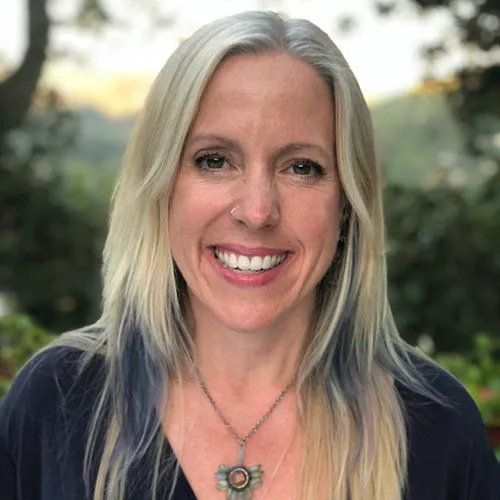As demand soars for alternative mental health treatments, psychedelics continue to rise to the surface. These women are advancing modern research, treatment, and advocacy.
The world is facing a mental health crisis, with millions of people struggling with anxiety, depression, PTSD, and other mental health disorders every year. Despite advancements in modern medicine, traditional treatments like antidepressants and therapy have proven to be insufficient for many people, with treatment-resistant depression affecting about 30 percent of patients, according to Johns Hopkins. This has led to a growing interest in alternative treatments, including psychedelics. And women are leading the charge.
Psychedelics have been used for centuries in spiritual and healing practices and are revered by Indigenous communities around the world. They were criminalized throughout developed countries in the mid-20th century due to their association with the counterculture movement. However, in recent years, there has been a resurgence of interest in psychedelics as a potential treatment for mental health disorders.

Studies have shown that psychedelics can have profound therapeutic effects, with some patients experiencing long-lasting improvements in symptoms after just a few sessions. Research has also suggested that psychedelics may help to reduce anxiety and depression, improve mood and creativity, and enhance feelings of connection and empathy.
Despite the promising results, the field of psychedelic research and therapy is still relatively new, and there are many questions that remain unanswered. But that’s where women come in; women are playing an increasingly important role in the development of psychedelic research, policy, and business.
According to the World Health Organization, more than 264 million people worldwide suffer from depression, and more than 800,000 people die by suicide each year. The covid pandemic also took a toll on mental health, with surveys showing that rates of anxiety and depression have increased significantly since the start of the pandemic.
Traditional treatments like antidepressants and therapy have limited success rates, with treatment-resistant depression — two or more medical treatments failing to bring relief — on the rise. In contrast, early studies have shown that psychedelics have much higher success rates, with up to 80 percent of patients experiencing significant reductions in symptoms.
Despite the promising results, there is still much research that needs to be done in order to fully understand the therapeutic potential of psychedelics. Additionally, the legal and regulatory landscape around psychedelics is complex, with many challenges facing researchers and entrepreneurs in the field.
Women in psychedelics
As research and interest in psychedelics grow, women are taking a leadership role in the movement. From research to business to advocacy, women are playing an important role in shaping the future of psychedelic medicine. Here are some of the category’s biggest changemakers.

1. Dr. Rosalind Watts
Dr. Rosalind Watts is a clinical psychologist and researcher at Imperial College London’s Centre for Psychedelic Research. Her work focuses on using psychedelics to treat depression and anxiety, and she was a lead therapist in the landmark psilocybin for depression study.

2. Dr. Rachel Yehuda
A professor of psychiatry and neuroscience at the Icahn School of Medicine at Mount Sinai in New York, Dr. Rachel Yehuda’s work focuses on using psychedelics to treat PTSD, and she has conducted some of the earliest studies on MDMA-assisted psychotherapy for PTSD.

3. Veronica Hernandez
Veronica Hernandez is an advocate for safe and equitable access to plant medicines. Her efforts focuses on education, advocacy, and harm reduction, and aims to ensure that all people have access to safe and effective plant medicine treatments.

4. Dr. Monnica Williams
Dr. Monnica Williams is a clinical psychologist and researcher at the University of Kentucky, and is one of the leading experts on the intersection of race and psychedelics. Her work focuses on the potential for psychedelics to address racial trauma and reduce racial biases.

5. Elena Argento
Scientific Manager and Scientist at Numinus, Elena Argento studies the use of psychedelic medicines for addiction treatment. Her research focuses on the potential for psychedelics to help individuals overcome addiction and reduce relapse rates.

6. Katherine MacLean
Through research and education, Katherine MacLean is studying the effects of psychedelic medicines on consciousness and the brain. She is also the founder of the Psychedelic Education and Continuing Care Program, which provides support and education for individuals who have had psychedelic experiences.

7. Amanda Feilding
Countess of Wemyss and March, Amanda Feilding is the founder of the Beckley Foundation, a U.K.-based think-tank and U.N.-accredited NGO. Her work focuses on drug policy reform and research into the therapeutic potential of psychoactive substances. Feilding’s advocacy and groundbreaking research collaborations have been central to the renaissance in psychedelic science.

8. Amy Emerson
CEO of the Multidisciplinary Association for Psychedelic Studies (MAPS) Public Benefit Corporation (PBC), Amy Emerson leads the effort to develop medical, legal, and cultural contexts for people to benefit from the careful uses of psychedelics. Under her leadership, MAPS PBC is conducting pivotal Phase 3 trials of MDMA-assisted psychotherapy for PTSD.

9. Beatriz Caiuby Labate (Bia Labate)
An anthropologist with extensive research on psychoactive substances, Beatriz Caiuby Labate is the Executive Director of the Chacruna Institute for Psychedelic Plant Medicines. Her work emphasizes the socio-political and cultural dimensions of psychedelic use, aiming to protect indigenous knowledge and promote drug policy reform.

10. Patricia Conrod
A professor of Psychiatry at Université de Montréal, Patricia Conrod’s research focuses on the psychological mechanisms that predispose individuals to develop psychiatric disorders or substance misuse, including exploring the potential of psychedelics in treatment. Her innovative work in identifying at-risk populations and developing early interventions is widely recognized.

11. Kat Conour
Executive Director and Co-founder of Aura Therapeutics, Kat Conour is working at the intersection of technology and psychedelic therapy. Her organization is dedicated to creating accessible, scalable solutions to enhance the effectiveness of psychedelic-assisted therapies, leveraging her background in bioengineering and health tech.

12. Sandra Ingerman
A world-renowned teacher of shamanism, Sandra Ingerman has been a bridge between the ancient healing traditions of shamanic practices and modern society. Her work incorporates the use of psychoactive plants as a path to deep healing and spiritual awakening, fostering a greater understanding of indigenous wisdom and practices.

13. Gita Vaid
A psychiatrist and psychoanalyst with a private practice in New York, Gita Vaid has gained recognition for her innovative approach to integrating ketamine-assisted psychotherapy into her practice. Her work explores the intersection of traditional psychotherapy and psychedelic medicine, offering new pathways for healing.

14. Mellody Hayes, MD
An anesthesiologist, writer, and the founder of Ceremony Health, a collective of healers providing culturally aware and inclusive care, Mellody Hayes is an advocate for the healing potential of psychedelics, emphasizing the importance of spiritual and communal dimensions in the healing process.
Related on Ethos:


